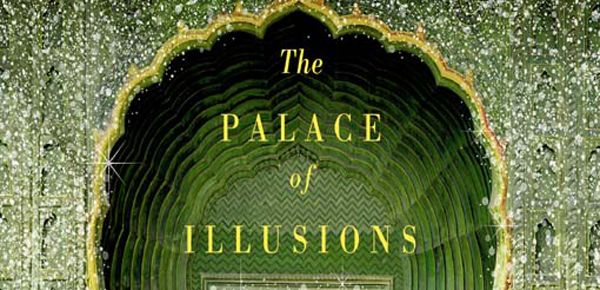By Upendra Mishra
When I finished my 5th grade education from the primary school of my village, my grandfather had arranged for me to leave my village and go to a school in a different place where his younger brother was posted as supervisor of a government-owned seed and fertilizer store. I still remember I was so excited. I thought I was going to a city where we will have electricity, shops, see cars, buses, trains, rickshaws, and most importantly tiny little shops where we would be able to buy sweets, pakoras and samosas. Before, only place I had seen such luxuries was in occasional melas in nearby villages.

The place I was going was only less than 100 kilometer from my village, but it took the entire day to reach there. One of my uncles was taking me there. We first walked more than two miles to the nearest railway station from my village, took a train to district town, took a rickshaw to the town’s bus station and took a bus to a town near where the brother of my grandfather was posted. From there, we took another bus to reach near and then we had to walk about two kilometer in humid sweltering heat. I was, however, still excited that I was going to live in a city. I could not contain my happiness.
When we reached our final destination in the evening I was in a total shock. This place was much remoter than my native village. There was a tiny building that stood on the bank of a seasonal river in a deep mango orchard. It housed seeds and fertilizers in one section. The brother of my grandfather lived in another side of the building all by himself. But he was so excited to see me. I give him one hundred percent credit for my early upbringing and education, and most importantly for fostering some core values that even guide me today. I called him grandfather, too.
Among his friends, there was a Pandeji, a Singh Saheb, a Chaudhari and a Moulavi Saheb. Everyday in the evening they would gather there. My grandfather would make tea for them and then will talk about everything going around. Of course, there was no electricity and no radio and TV and no newspaper.
My grandfather was a big fan of the Indian epic Mahabharata. He remembered every story of the epic and would often recite them. I would be sitting among them and listen to his Mahabharata stories and the the discussions that followed. The place was totally new for me. I did not know anyone and I had no friends except the friends of my grandfather. In his own way, my grandfather lived like a Sufi saint. He will always be humming slokas, reciting Urdu couplets and of course Mahabharat stories.
I learned many of the Mahabharata stories from just listening to my grandfather.
The authorship of the Mahabharata is attributed to sage Vyasa. No one knows when it was exactly written, but scholars estimate somewhere between 1,000 BC and 400 BC. According to Wikipedia, Mahabharata is the longest epic poem known and has been described as “the longest poem ever written.” It has over 100,000 śloka or over 200,000 individual verse lines and long prose passages, according to Wikipedia. With about 1.8 million words in total, the Mahabharata is roughly ten times the length of the Iliad and the Odyssey combined, or about four times the length of the Ramayaṇa, according to Wikipedia.
 When I was living with my grandfather, he would always tell stories from this epic. When I started to read and understand, the first fiction book that I ever read was Mahabharat. I was in the sixth grade. I still remember sitting on a thread-woven cot under mango trees in scorching summer days and reading this thick book. When I was in my 20s, I read it again and after that I have read this book many times, and I also watched Mahabharat TV serial a couple of times with my son, who was fully absorbed during his favorite scenes. The two volumes of Mahabharta still remain on my bedside along with Yogvashistha.
When I was living with my grandfather, he would always tell stories from this epic. When I started to read and understand, the first fiction book that I ever read was Mahabharat. I was in the sixth grade. I still remember sitting on a thread-woven cot under mango trees in scorching summer days and reading this thick book. When I was in my 20s, I read it again and after that I have read this book many times, and I also watched Mahabharat TV serial a couple of times with my son, who was fully absorbed during his favorite scenes. The two volumes of Mahabharta still remain on my bedside along with Yogvashistha.
From my sixth grade onwards, Karna was my favorite character of Mahabharata. His life’s tragedies and misfortunes, his will and determination against all odds to succeed, his strength, his fairness, his utter loneliness, his self-control, his self-confidence, his ability to keep his promises, and his total loyalty to his friend Duryordhan and everyone except Arjun always fascinated me. In fact, those stories still captivate me.
But then a few years ago, a friend of mine gave me a copy of “The Palace of Illusions” by Chitra Banerjee. It is written as a memoir by Draupadi, the famous Mahabharata character who had married five brothers—all at the same time.
I could not keep “Palace of Illusions” away as long as I was at home, and soon realized that someone finally did justice to Karna—obviously and ironically in his own tragic way. And for me, “The Palace of Illusions” became the “Palace of Love” of Karna and Drapudadi. But the book is also sprinkled with some practical pearls of wisdom throughout, especially from a perspective of a powerful, dynamic and determined woman.
Here are a few excerpts:
- “A problem becomes a problem only if you believe it to be so. And often others see you as you see yourself.”
- “He who has not conquered himself, how will that king conquer enemies? (quoted from Manu Samhita).
- “The force of a person’s believing seeps into those around him—into the very earth and air and water—until there is nothing else.”
- “Love strikes like lightening and disappears the same way. If you are lucky, it strikes you right. If not, you will spend your life yearning for a man you cannot have.”
- “Do not let the waves of emotion drown you.”
- “Princess must not panic until they have tested the truth of a rumor for themselves.”
- “If I was lucky, love would come.”
- “What use it was to worry about the future.”
- “We grow to become that which we live within.”
- “I have used up all the tears of my life so that they will not distract me.”
- “Expectations are like hidden rocks in your path—all they do is trip you up.”
- “Your childhood hunger is the one that never leaves you.”
- “A well-meaning man is more dangerous because he believes in the righteousness of what he does. Give me an honest rascal any day.”
- “You no longer care what people think of you, and that has given you a great freedom.”
- “When in great trouble, rest your mind on someone who loves you.”
- “No one can shame you if you don’t allow it.”
(Mr. Mishra is managing partner of the Waltham, MA-based integrated inbound marketing and PR firm The Mishra Group. He writes about his three passions: marketing, scriptures and gardening.)















